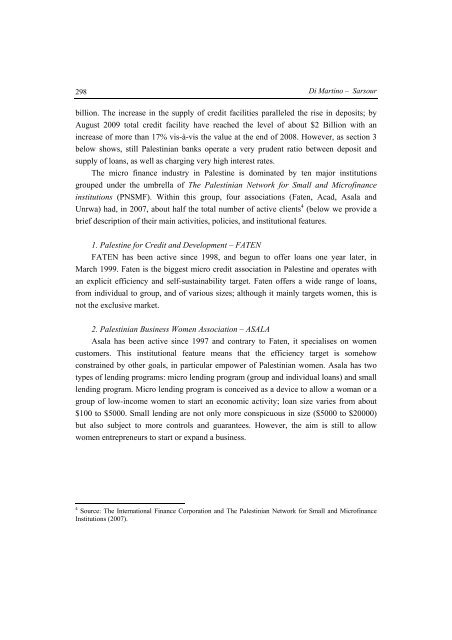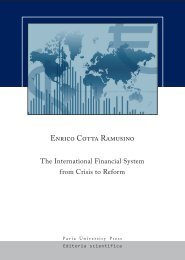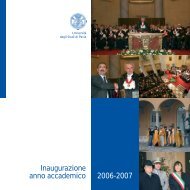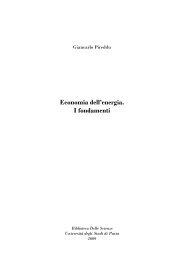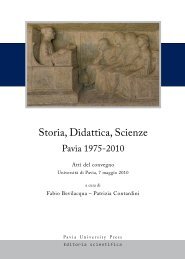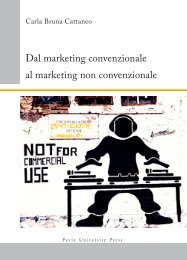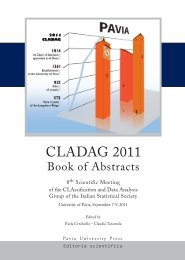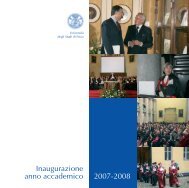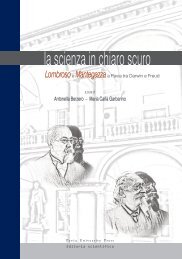The Palestinian Economy. Theoretical and Practical Challenges
The Palestinian Economy. Theoretical and Practical Challenges
The Palestinian Economy. Theoretical and Practical Challenges
Create successful ePaper yourself
Turn your PDF publications into a flip-book with our unique Google optimized e-Paper software.
298<br />
Di Martino – Sarsour<br />
billion. <strong>The</strong> increase in the supply of credit facilities paralleled the rise in deposits; by<br />
August 2009 total credit facility have reached the level of about $2 Billion with an<br />
increase of more than 17% vis-à-vis the value at the end of 2008. However, as section 3<br />
below shows, still <strong>Palestinian</strong> banks operate a very prudent ratio between deposit <strong>and</strong><br />
supply of loans, as well as charging very high interest rates.<br />
<strong>The</strong> micro finance industry in Palestine is dominated by ten major institutions<br />
grouped under the umbrella of <strong>The</strong> <strong>Palestinian</strong> Network for Small <strong>and</strong> Microfinance<br />
institutions (PNSMF). Within this group, four associations (Faten, Acad, Asala <strong>and</strong><br />
Unrwa) had, in 2007, about half the total number of active clients 4 (below we provide a<br />
brief description of their main activities, policies, <strong>and</strong> institutional features.<br />
1. Palestine for Credit <strong>and</strong> Development – FATEN<br />
FATEN has been active since 1998, <strong>and</strong> begun to offer loans one year later, in<br />
March 1999. Faten is the biggest micro credit association in Palestine <strong>and</strong> operates with<br />
an explicit efficiency <strong>and</strong> self-sustainability target. Faten offers a wide range of loans,<br />
from individual to group, <strong>and</strong> of various sizes; although it mainly targets women, this is<br />
not the exclusive market.<br />
2. <strong>Palestinian</strong> Business Women Association – ASALA<br />
Asala has been active since 1997 <strong>and</strong> contrary to Faten, it specialises on women<br />
customers. This institutional feature means that the efficiency target is somehow<br />
constrained by other goals, in particular empower of <strong>Palestinian</strong> women. Asala has two<br />
types of lending programs: micro lending program (group <strong>and</strong> individual loans) <strong>and</strong> small<br />
lending program. Micro lending program is conceived as a device to allow a woman or a<br />
group of low-income women to start an economic activity; loan size varies from about<br />
$100 to $5000. Small lending are not only more conspicuous in size ($5000 to $20000)<br />
but also subject to more controls <strong>and</strong> guarantees. However, the aim is still to allow<br />
women entrepreneurs to start or exp<strong>and</strong> a business.<br />
4 Source: <strong>The</strong> International Finance Corporation <strong>and</strong> <strong>The</strong> <strong>Palestinian</strong> Network for Small <strong>and</strong> Microfinance<br />
Institutions (2007).


